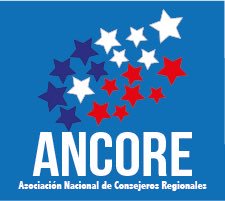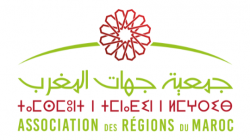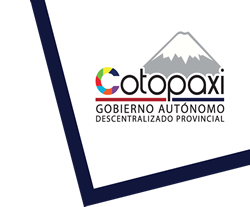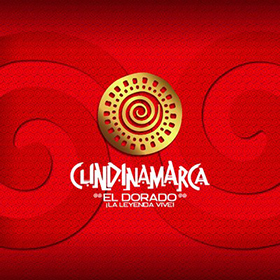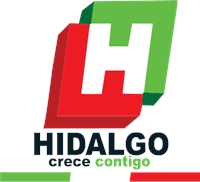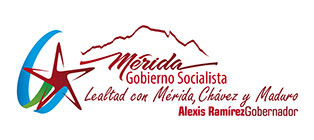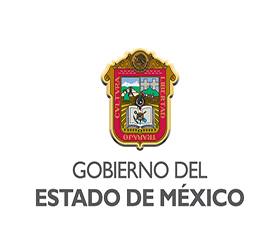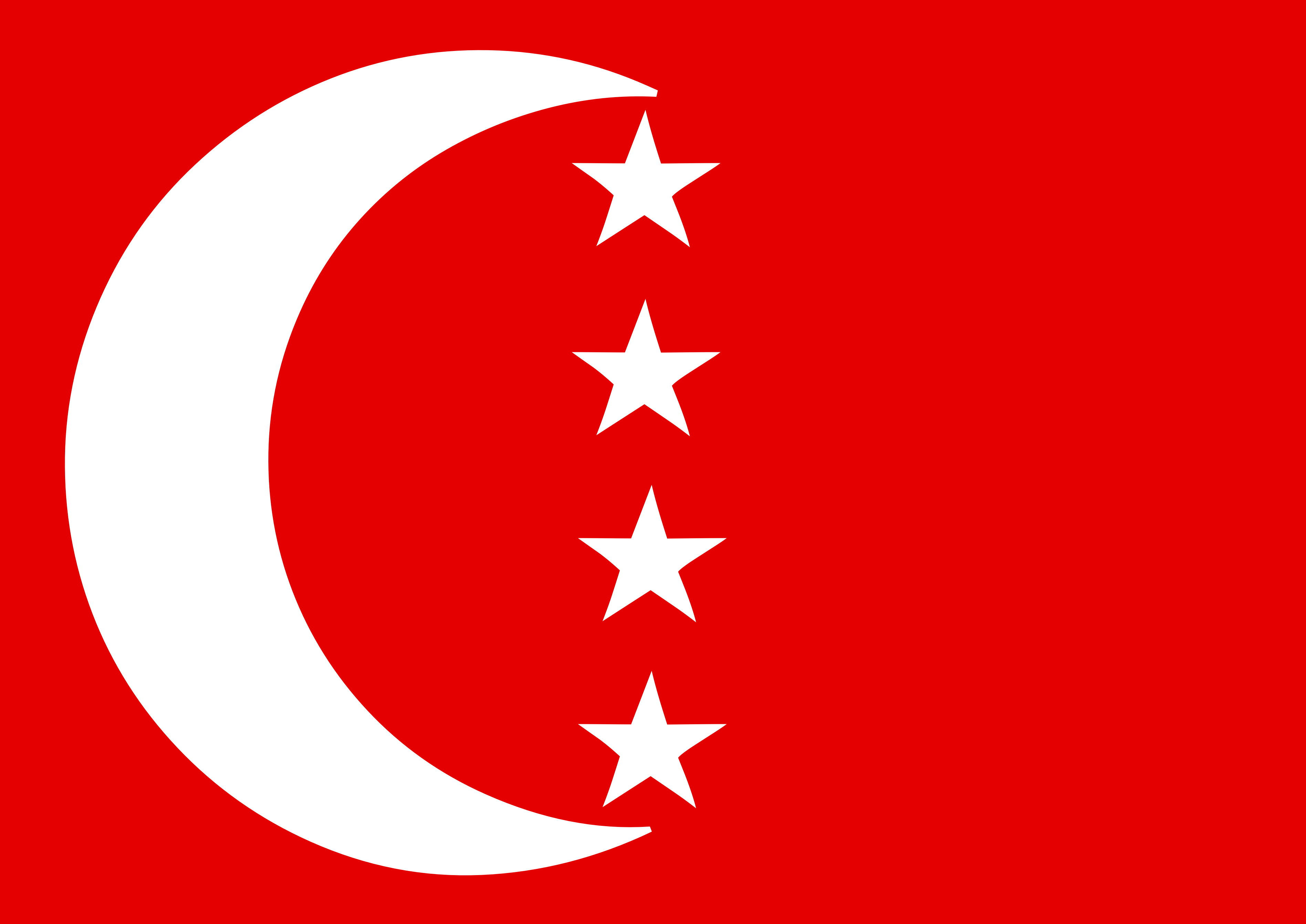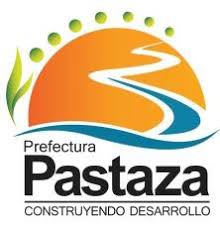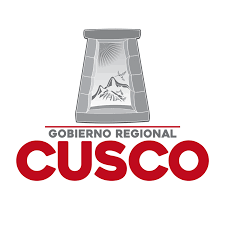Regions from 23 countries participated in the Rabat Forum
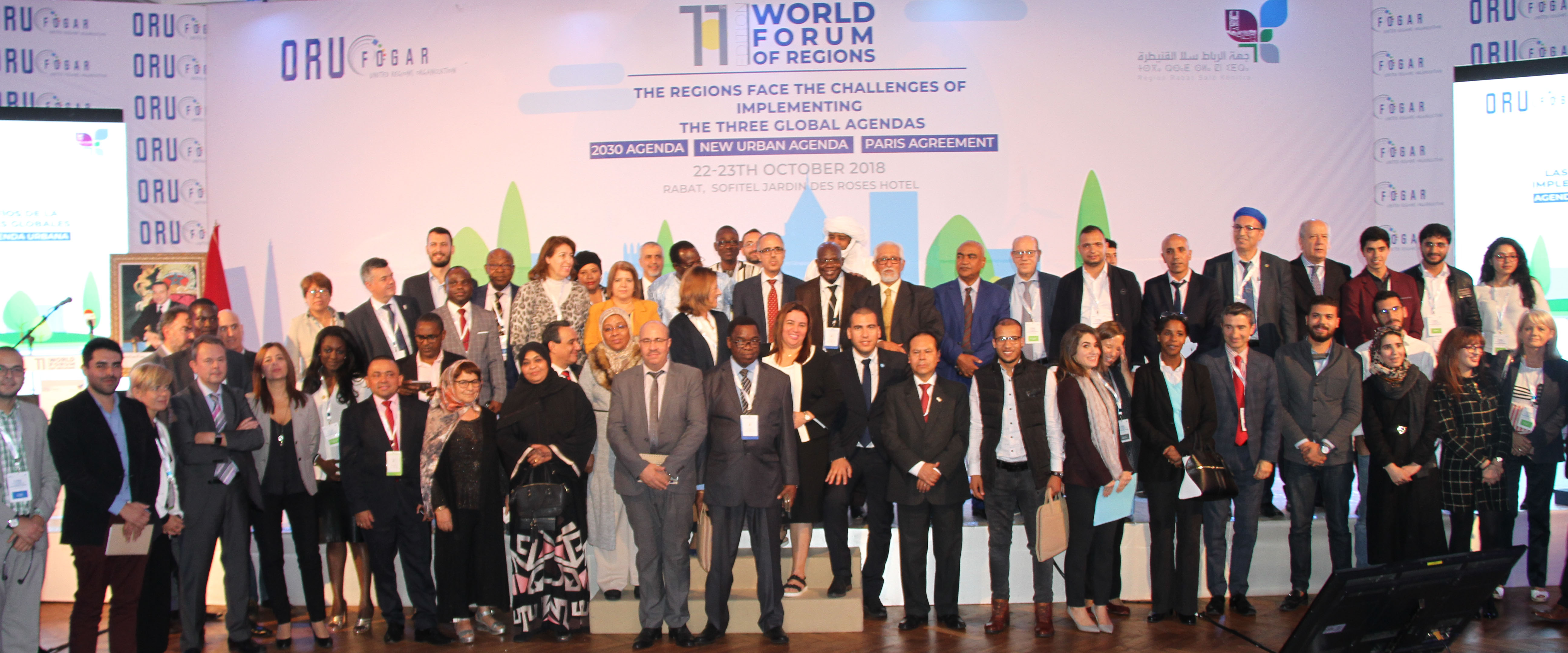
Regions from Africa, Europe and America took part in the ORU Fogar XI Forum of the Regions held in Rabat on 22 and 23 October. Beyond the notable presence of the Moroccan regions and the Association of Moroccan Regions, the event was attended by regions from Senegal, Ivory Coast, Niger, Mali, Burkina Faso, Kenya and Northern Sudan. Regions from Spain, France, Belgium and Italy were also present at the meeting organised by the Council of Rabat Salé Kénitra. Representatives of states, provinces and regions from Argentina, Chile, Uruguay, Paraguay, Peru, Ecuador, Bolivia, Colombia, Venezuela and Mexico arrived in Rabat from America.
On the morning of Monday, October 22, prior to the forum, the ORU Fogar Bureau and Annual Assembly were held, which, in addition to validating the accounts and budget for the coming year, approved the incorporation of the Association of European Border Regions into the Bureau. The State of Merida, Venezuela, the Departments of Tarija and Santa Cruz in Bolivia, the Commonwealth of the Andes, as well as the Association of Regions of Niger and the Department of San Pedro in Ivory Coast were also approved as new members of the organisation. At the assembly, the representative sent by the governor of the island of Anjouan, Comoro Islands, was given the floor to explain the process that had led to the suspension of the autonomies of that country.
The forum itself, dedicated to the three global agendas (2030 Agenda, Paris Agreement, New Urban Agenda), began with the presence of the Moroccan head of government, Saadeddine Otmani, who showed great commitment to implementing the agendas in Morocco, with the participation of the regions and within the framework of the country's advanced regionalization process.
In all the debates and statements, with the participation of governors and presidents of regions, together with experts and representatives of different United Nations agencies, it was noted that much work remains to be done. "If the challenge is to achieve the SDGs by 2030," said the Basque government representative Rafael Hueso- "12 years and a huge amount of work remain". Several speakers pointed out the great difficulty of achieving Goal 2 Zero Hunger, "considering that there are more than 800 million people suffering from hunger". Much emphasis was also placed on how time goes by and climate change is not being tackled head-on.
At the closing, the president of ORU Fogar and host as president of the Regional Council of Rabat Salé Kénitra, Abdessamad Sekkal, pointed out with great emphasis that the realization of the three agendas needed "systemic changes in the way management and governance are carried out in each of the countries and the adoption, without further delay, of the principle of subsidiarity". President Sekkal also claimed that the implementation of the SDGs called for the planning and the adaptation of government programmes, as well as the involvement of all public and private actors, civil society and citizens.
The event ended with the adoption of the "Rabat Declaration - Regions face the challenges of implementing the three global agendas".
Related content:
Rabat Declaration (Spanish, English and French)


